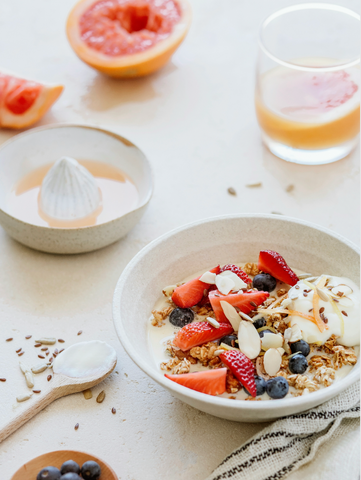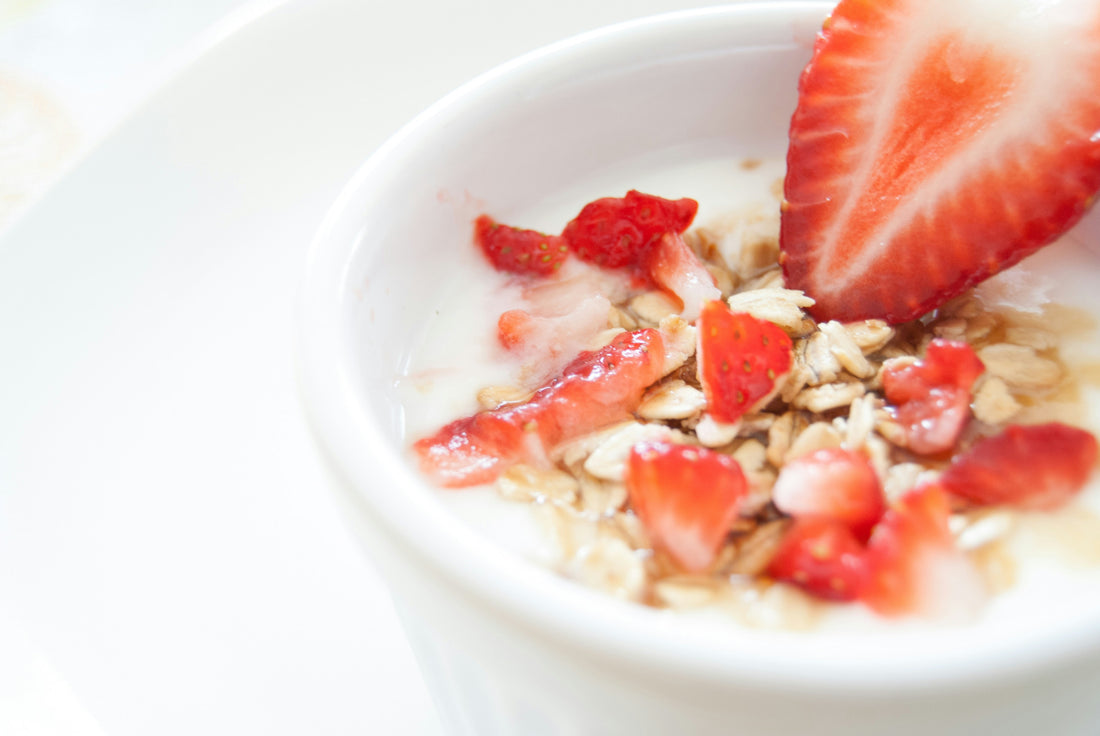In the quest for the perfect breakfast that balances convenience, taste, and health, two contenders often emerge: Muesli and Granola.
At first glance, these wholesome blends might appear similar, each offering a mix of grains, nuts, seeds, and fruits. However, delving deeper into their ingredients, preparation methods, and nutritional profiles reveals distinct differences.
This exploration aims not only to highlight these differences but also to shed light on why Muesli might just edge out as the healthier choice for your morning routine.

The Basics: Composition and Preparation
Muesli, a Swiss invention, is traditionally a raw mix comprising oats, nuts, seeds, and dried fruits. It's commonly soaked overnight in milk or yogurt, leading to a soft, porridge-like consistency by morning. This preparation method enhances digestibility and nutrient availability.
Granola, on the other hand, hails from the United States. Its base also includes oats, nuts, and fruits, but it's mixed with sweeteners like honey or maple syrup and oil, then baked until crisp. This process results in a crunchy texture that's often more appealing straight from the bag or box.
Nutritional Showdown
When it comes to nutritional content, both Muesli and Granola pack a punch. They're rich in fiber, proteins, and essential fatty acids, making them excellent starters for the day. However, the devil is in the details—or in this case, the added sugars and fats.
Granola's baking process, necessitated by oils and sweeteners, spikes its calorie count. While these ingredients contribute to Granola's irresistible crunch, they also increase its sugar and fat content, potentially offsetting the health benefits of its raw components.
Muesli, predominantly consumed in its raw form or soaked, often contains less sugar and no added fats, making it a lower-calorie option. The absence of baking preserves the natural integrity of its ingredients, ensuring a nutrient-dense meal with every spoonful.
Why Muesli Might Be the Healthier Option
1. Lower Sugar Content: The lack of added sweeteners in Muesli means it usually has a lower sugar content compared to Granola, reducing the risk of energy spikes and crashes.
2. Heart Health: The minimal processing of Muesli better preserves the heart-healthy fats found in nuts and seeds, whereas the oils used in Granola can sometimes be high in unhealthy fats.
3. Weight Management: With fewer calories and a higher fiber content, Muesli can be more satisfying and help maintain a healthy weight by keeping you fuller for longer.
4. Digestive Health: The soaking process not only makes Muesli easier to digest but also enhances the absorption of nutrients, benefiting your overall digestive health.
5. Flexibility: Muesli's versatility allows for controlled sweetening according to personal taste, using healthier options like fresh fruits or a drizzle of honey, thus avoiding the excessive sugars often found in pre-packaged Granola.
Conclusion
Both Muesli and Granola can be part of a balanced diet, offering essential nutrients in tasty, convenient packages. However, for those mindful of sugar intake, digestive health, and caloric content, Muesli stands out as the healthier choice. Its preparation and consumption encourage a more mindful eating practice, aligning well with the values of natural and wholesome nutrition.

